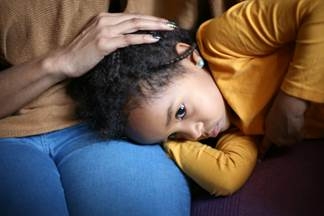2/9/17 news article
stopping the spread of sickness

Right now, Dayton Children’s is seeing increasing emergency room visits and admissions from a variety of respiratory and stomach/intestinal illnesses. In the past month, more than 500 kids have tested positive for RSV - respiratory syncytial virus. In addition, more than 200 tests have come back positive for the flu. So as sickness spikes, what can parents do to stop it?
“We call it respiratory etiquette,” says Dr. Alter. “Cover your mouth and nose when you sneeze, preferably with the inside of your elbow and not your hands. If you use a tissue, throw it away immediately. Wash your hands frequently, especially after blowing your nose or using the restroom. Stay home if you are sick – don’t go to work or school.”
While most children will recover well from viruses, some may be hit harder because of underlying health conditions. For example, almost all children get RSV at least once before the age of two. “If you and I get it, we get a cold,” says Sherman Alter, MD, medical director of the infectious disease department at Dayton Children’s “It’s the tiny babies younger than the age of 1 year who can also develop lower respiratory tract symptoms and develop a complication called bronchiolitis. These infants may have difficulty breathing and may breathe rapidly. Some of them may need to be hospitalized. It’s also a bigger problem for kids with depressed immune systems.”
Since babies are especially vulnerable, parents should take extra precautions with them.
- Wash your hands often and ask anyone who is around your baby to do the same.
- Keep your baby away from anyone who has a cold, fever or runny nose.
- Avoid taking baby to crowded areas like shopping malls.
- Keep your baby away from tobacco smoke.
- For high-risk infants, participation in child care should be restricted during RSV season whenever possible.
If your baby does get sick, see a doctor if you notice the following symptoms:
- Difficulty breathing or rapid breathing
- Changes in eating habits
- Changes in sleeping habits
- A high fever
- Change in alertness
- Any symptoms of distress
To prevent the flu, all infants and their contacts should be immunized against influenza beginning at 6 months of age. Additionally, immunization of a pregnant woman with flu vaccine may prevent her infant from acquiring the flu during the first few months of life.
For more information, contact:
Stacy Porter
Public relations manager
Phone: 937-641-3666
newsroom@childrensdayton.org

